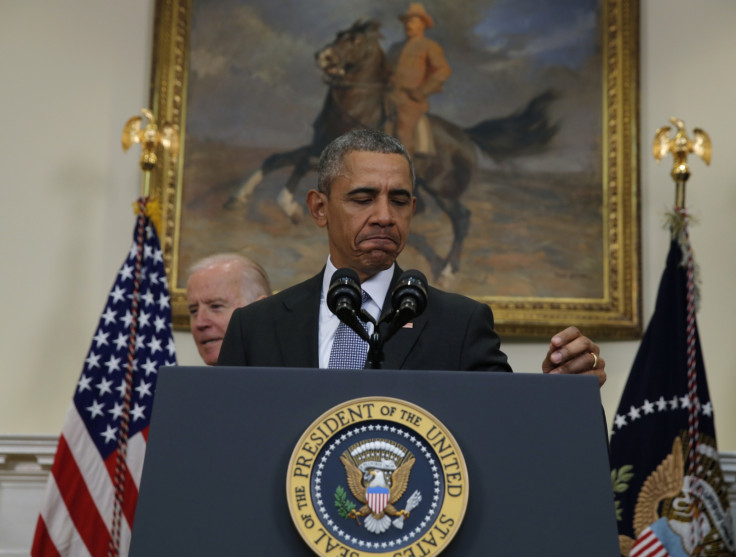President Barack Obama signs annual defence bill, but criticises Guantanamo Bay facility policy
Obama in his 2008 presidential campaign had promised to close the detention centre.
The outgoing President of the United States, Barack Obama, criticised some parts of an annual defence bill including policies restricting him from shutting down the Guantanamo Bay detention centre even as he signed the bill to make it a law on Friday (23 December).
The prison was opened by Obama's predecessor George W. Bush to hold terrorism suspects after the 9/11 attack, which eventually led the United States to accusations of torture. And, in his 2008 presidential campaign, Obama had promised to close it – which symbolises aggressive detention practices and torture – but failed to do so because of the opposition from the Republicans in Congress. However, he has managed to transfer a number of detainees to other centres in different countries.
More recently, Obama has also pledged to move around 18 more prisoners of the 59 remaining at Guantanamo before he leaves office in January.
The defence spending bill, worth of $618.7bn (£503.91bn), was passed by the Republican-controlled Congress. It was said to be a compromised adaptation that dropped controversial language requiring women to register for the draft.
However, it still contained a number of things that were opposed by the Obama-administration. In the new bill, the legislation have boosted military spending and barred closures of military bases even though top Pentagon officials said that they have too much capacity.
House of Representatives Speaker Paul Ryan, a Republican, said that the legislation would give US troops a pay raise and praised the Guantanamo language.
"This ensures that, right up until his last hour in office, President Obama will not be able to transfer Guantanamo Bay detainees to the United States," Ryan said in a statement.
The retiring president also said on Friday that he was in favour of splitting the US Cyber Command from the National Security Agency and making it self-governing, citing the growing migration of spying and feud into cyberspace.

© Copyright IBTimes 2025. All rights reserved.





















